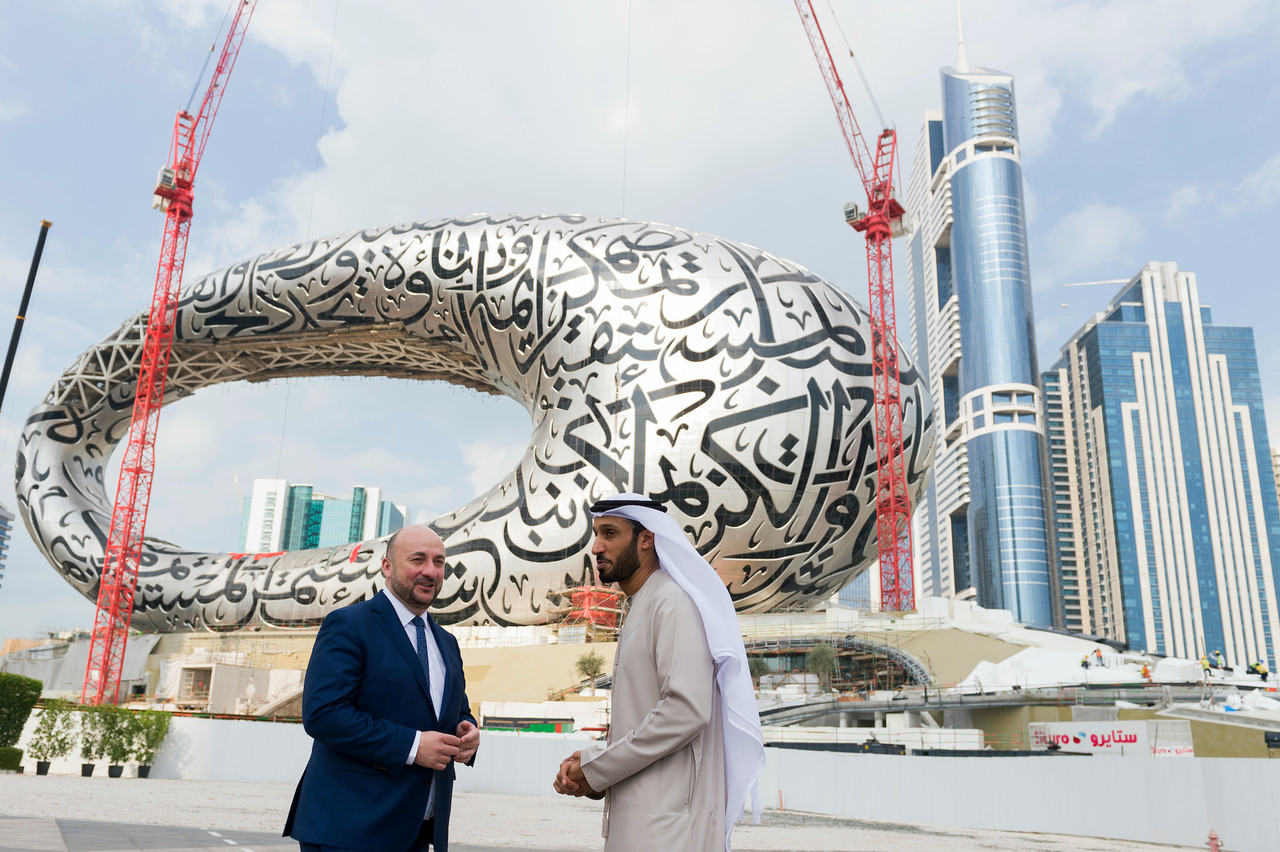The situation is a bit complicated: either Luxembourg does not go to the World Expo and the authorities are accused of not taking advantage of the opportunities to promote the country or Luxembourg does go and social networks are full of criticism regarding inconsiderate spending.
Since 1851, Luxembourg has participated in 21 out of 34* world exhibitions, including Shanghai. On the basis of this last participation the authorities set up the one for the Dubai exhibition. The EIG put in place for Shanghai did not spend all the money that had been budgeted and the remaining €5.8 million were paid back into the capital of the new EIG for Dubai.
The budget should remain in the upper range of €32 million , the EIG says. Of which €2.5m were contributed three times by two private companies (SES and Post) and by the Chamber of Commerce, which contributed €2 million in cash and €500,000 to be allocated to the staff.
Three other companies contributed €500,000 to become "diamond" sponsors (ArcelorMittal, Cargolux and Rak), and four others €50,000 to become "gold" sponsors (Schroeder Joailliers, Guardian Glass, ULT and MCM Luxembourg).
The remaining €17 million were provided by the State in two instalments, at the end of 2019 and the end of 2020.
Maximising visibility
Shanghai EIG was able to bring in money from the Chinese World Expo because the prices, particularly in construction, were much lower than what had been budgeted on the basis of European rates. The opposite will be the case in Dubai, where prices are about 25% higher than estimated.
Nevertheless, the return on investment is not measured in terms of a "before/after", but rather in terms of the number of relationships that the event allows to be anchored in the long term, insists the EIG.
This time, presence at the event will complement the presence of the LTIO in the United Arab Emirates. The aim is to maximise the country's visibility, especially as the Luxembourg pavilion will be right next to that of the Gulf Cooperation Council, or even the Indian subcontinent and Central Asia.
Another interesting detail is that while Luxembourg will spend a maximum of €32 million on Expo 2020 Dubai, France will not spend more than €30 million. This is a surprisingly low budget compared to the €120 million spent by the Chinese, the €90 million spent by the Japanese, the €70 million spent by the Americans and the €50 million spent by the Germans and Italians.
This story was first published in French on . It has been translated and edited for Delano.
(*: not 23 as indicated on the Luxembourg Expo 2020 Dubai website - since neither the Paris (1925) nor the Lisbon (1998) exhibitions are recognised by the Bureau of International Expositions as 'universal exhibitions'. Eight times, the country has skipped rather distant destinations (Melbourne 1880, Chicago 1893, St. Louis 1904, San Francisco 1915, Port-au-Prince 1949, San Antonio 1967, Osaka 1970 and Aichi 2005), even though it took part in those of Philadelphia in 1876, Chicago in 1933, New York in 1939, Seattle in 1962 or Shanghai in 2010).
